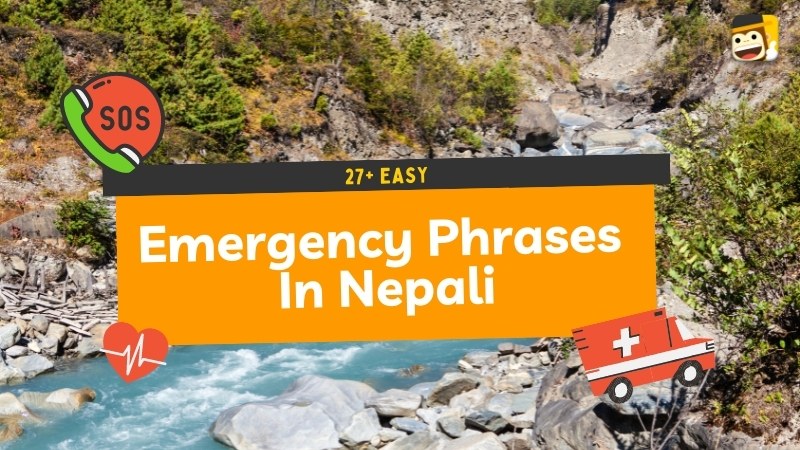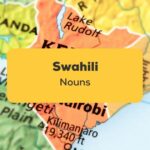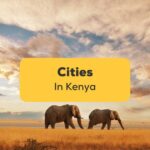When traveling for the first time in a foreign country, one’s inability to communicate appropriately can lead to a big problem. If you are planning to travel to Kathmandu or Bhaktapur soon, we highly recommend that you learn some basic आपतकालीन (pronounced as Āpatakālīna) or emergency phrases in Nepali to express yourself better when you find yourself in a sticky situation. If you are ready for that, then let’s get started!
Emergency Phrases In Nepali
In Case You Get Arrested
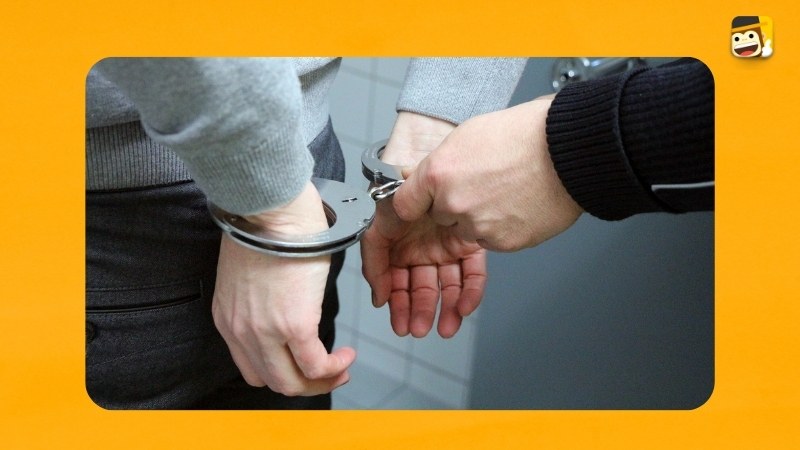
As a foreigner, there might be an instance wherein you’ll find yourself committing a crime without knowing it. Of course, every country has its own rules, which means that whatever applies to your country might not be the same for the place you are traveling to. For this reason, we highly recommend that you get acquainted with some travel hacks from constant travelers and memorize some of the expressions below.
- I haven’t done anything wrong = Mailē kunai galtī garēkō chaina (मैले कुनै गल्ती गरेको छैन)
- It was a misunderstanding = Yō ēka galataphahamī thiyō (यो एक गलतफहमी थियो)
- Where are you taking me? = Malā’ī kahām̐ laijādai chau? (मलाई कहाँ लैजादै छौ ?)
- Can I please speak with someone who can help me? = Kē ma kr̥payā malā’ī maddata garna saknē kasaisam̐ga kurā garna sakchu? (के म कृपया मलाई मद्दत गर्न सक्ने कसैसँग कुरा गर्न सक्छु?)
- Am I under arrest? = Kē ma giraphtāramā chu? (के म गिरफ्तारमा छु?)
- I am a …….. Citizen = Ma ēka ….. nāgarika hum̐ (म एक ….. नागरिक हुँ)
- I want to talk to the …….. embassy = Ma ….. dūtāvāsasam̐ga kurā garna cāhanchu (म …. दूतावाससँग कुरा गर्न चाहन्छु)
- I want to talk to a lawyer = Ma vakilasam̐ga kurā garna cāhanchu (म वकिलसँग कुरा गर्न चाहन्छु)
- Can I just pay the fine now? = Aba jarivānā tirna sakchu? (के म अब जरिवाना तिर्न सक्छु?)
Asking For Help From Locals Or The Authorities
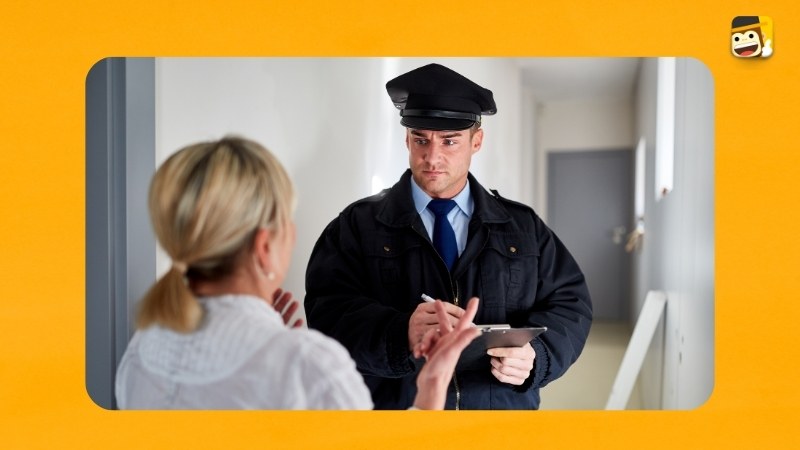
Do you not know which way to go? Anything can happen to anyone, no matter where you are in the world. It’s always good to know some essential words as well as the words and phrases you might use to ask for help or for a specialist in something.
- Help = Maddata garnuhōs (मद्दत गर्नुहोस्)
- Somebody help = Kasailē maddata garcha (कसैले मद्दत गर्छ)
- Can anyone help? = Kasailē maddata garna sakcha (कसैले मद्दत गर्न सक्छ)
- I need help = Malā’ī sahayōga cāhiyō (मलाई सहयोग चाहियो)
- Help me = Malā’ī sahayōga gara (मलाई सहयोग गर)
Helping Someone Else In Danger
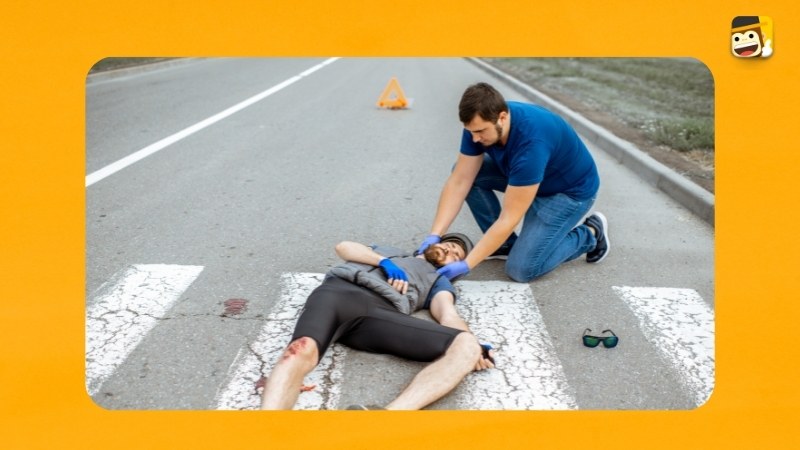
Experienced travelers are usually very observant of their surroundings. If you ever find someone who might fall into danger, feel free to use any of the expressions below.
- Look out = Bāhira hēra (बाहिर हेर)
- Watch out = Bāyām̐ ra dāyām̐ hērnuhōs (बायाँ र दायाँ हेर्नुहोस्)
- Be careful = Hōs gara (होस् गर)
In Case Of A Medical Emergency
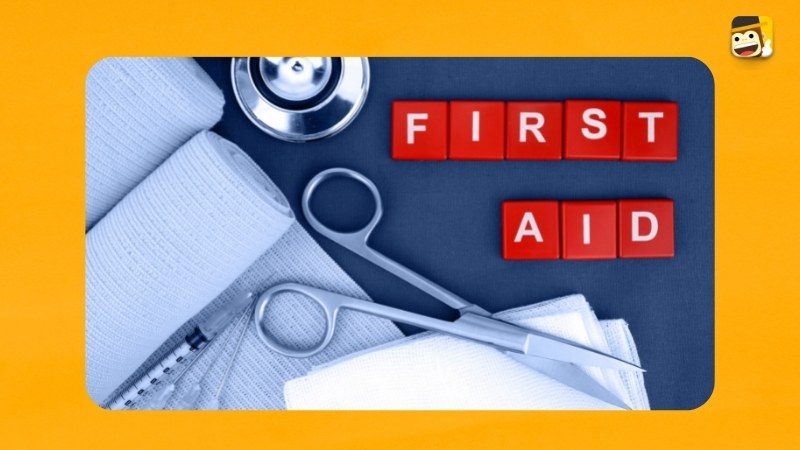
Life is so precious in the sense that you do not know when it will take a huge turn for the worst. For this reason, knowing some of the expressions below related to accidents and physical discomfort can undoubtedly help save a life.
- Call an ambulance = Ēmbulēnsa kala garnuhōs (एम्बुलेन्स कल गर्नुहोस्)
- I need a doctor = Malā’ī ḍākṭara cāhiyō (मलाई डाक्टर चाहियो)
- There’s been an accident = Durghaṭanā bha’ēkō cha (दुर्घटना भएको छ)
- Please hurry = Chiṭō gara (छिटो गर)
- He’s not breathing = Usalē sāsa phērirahēkō chaina (उसले सास फेरिरहेको छैन)
- She’s not breathing = Unakō sāsa phērirahēkō chaina (उनको सास फेरिरहेको छैन)
- I can’t feel a pulse = Ma palsa mahasusa garna sakdina (म पल्स महसुस गर्न सक्दिन)
- Does anyone know CPR? = Kasailā’ī CPR thāhā cha? (कसैलाई CPR थाहा छ?)
- I’ve cut myself = Mailē āphailā’ī kāṭēkō chu (मैले आफैलाई काटेको छु)
- The bleeding won’t stop = Ragata rōkinē chaina (रगत रोकिने छैन)
- I’ve burnt myself = Ma āphai jalēkō chu (म आफै जलेको छु)
- I can’t breathe = Ma sāsa phērna sakdina (म सास फेर्न सक्दिन)
- I can’t see = Ma dēkhna sakdina (म देख्न सक्दिन)
- I can’t hear = Ma sunna sakdina (म सुन्न सक्दिन)
- I’m choking = Ma nisāsdai chu (म निसास्दै छु)
- He’s choking = Ū nisāsirahēkō cha (ऊ निसासिरहेको छ)
- She’s choking = Nisāsdai chin (निसास्दै छिन्)
- My eyes are burning = Mērā ām̐khā jalirahēkā chan (मेरा आँखा जलिरहेका छन्)
- My eyes are stinging = Mērā ām̐khā rasā’um̐chan (मेरा आँखा रसाउँछन्)
- I’ve been hurt = Malā’ī cōṭa lāgēkō cha (मलाई चोट लागेको छ)
- I’ve been injured = Ma ghā’itē bha’ēkō chu (म घाइते भएको छु)
- I am hurt really bad = Malā’ī sām̐ccai narāmrō cōṭa lāgēkō cha (मलाई साँच्चै नराम्रो चोट लागेको छ)
- He is hurt badly = Unalā’ī narāmrō cōṭa lāgēkō cha (उनलाई नराम्रो चोट लागेको छ)
- Are you okay? = Sancai hunuhuncha? (सन्चै हुनुहुन्छ ?)
- Do you need help? = Kē timīlā’ī sahayōga cāhincha (के तिमीलाई सहयोग चाहिन्छ)
- Is everyone okay? = Sabai ṭhika cha? (सबै ठिक छ?)
- I am allergic to ….. = Malā’ī ēlarjī cha (मलाई एलर्जी छ)
In Case Of A Fire
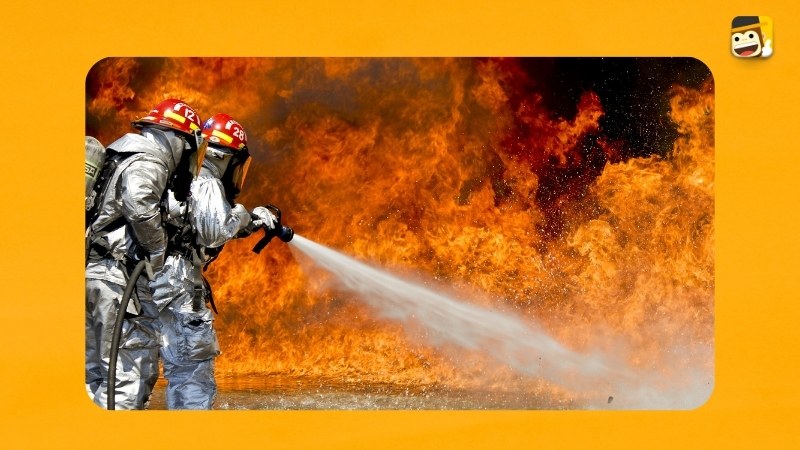
Aside from sudden accidents in houses or buildings, seasonal fires are also common in Nepal. If ever you are suspicious about the smell in the air or you are seeing a faint smoke from afar, knowing these expressions below will definitely help you out.
- Can you smell burning? = Kē tapā’īṁ jalēkō gandha sunna saknuhuncha? (के तपाईं जलेको गन्ध सुन्न सक्नुहुन्छ?)
- There’s a fire = Tyahām̐ āgō cha (त्यहाँ आगो छ)
- Fire = Āgō (आगो)
- The buildings on fire = Bhavanaharu āgōmā (भवनहरु आगोमा)
- The house is on fire = Gharamā āgō lāgēkō cha (घरमा आगो लागेको छ)
- The vehicle is on fire = Gāḍīmā āgō lāgēkō cha (गाडीमा आगो लागेको छ)
- Call an ambulance = Ēmbulēnsa kala garnuhōs (एम्बुलेन्स कल गर्नुहोस्)
- Call the fire department = Damakala vibhāgalā’ī kala garnuhōs (दमकल विभागलाई कल गर्नुहोस्)
- Call the police = Pulisalā’ī kala garnuhōs (पुलिसलाई बोलाउनुहोस्)
Helping Report A Crime
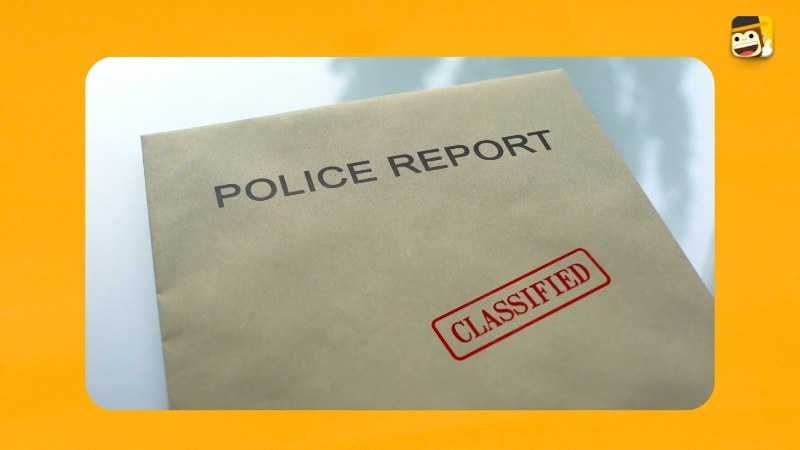
Got robbed? Wherever you are in the world, the locals will always know if you are a first-time traveler or not. Unfortunately, you will become an easy target, so we highly recommend learning the words and expressions below.
- Thief = Cōra (चोर)
- Stop = Rōka (रोक)
- There’s been a theft = Tyahām̐ cōrī bha’ēkō cha (त्यहाँ चोरी भएको छ)
- There’s been a burglary = Luṭapāṭa bha’ēkō cha (लुटपाट भएको छ)
- Call the police = Pulisalā’ī bōlā’unuhōs (पुलिसलाई बोलाउनुहोस्)
- I’ve been mugged = Ma luṭi’ēkō chu (म लुटिएको छु)
- I’ve been hit = Malā’ī prahāra bha’ēkō cha (मलाई प्रहार भएको छ)
- I’ve been shot = Malā’ī gōlī lāgēkō cha (मलाई गोली लागेको छ)
- I’ve been stabbed = Malā’ī churā prahāra gari’ēkō cha (मलाई छुरा प्रहार गरिएको छ)
- I’ve been robbed = Ma luṭi’ēkō chu (म लुटिएको छु)
- I’d like to report a theft = Ma cōrī ripōrṭa garna cāhanchu (म चोरी रिपोर्ट गर्न चाहन्छु)
- I’d like to report something stolen = Ma kēhi cōrī bha’ēkō ripōrṭa garna cāhanchu (म केहि चोरी भएको रिपोर्ट गर्न चाहन्छु)
- My handbag was stolen = Mērō hyānḍabyāga cōrī bhayō (मेरो ह्यान्डब्याग चोरी भयो)
- My wallet was stolen = Mērō vālēṭa cōrī bhayō (मेरो वालेट चोरी भयो)
- My laptop was stolen = Mērō lyāpaṭapa cōrī bhayō (मेरो ल्यापटप चोरी भयो)
- My phone has been stolen = Mērō phōna cōrī bha’ēkō cha (मेरो फोन चोरी भएको छ)
- Something has been stolen = Kēhi cōrī bha’ēkō cha (केहि चोरी भएको छ)
- My house was broken into = Mērō ghara tōḍaphōḍa bhayō (मेरो घर तोडफोड भयो)
Comforting Someone In The Moment Of An Emergency
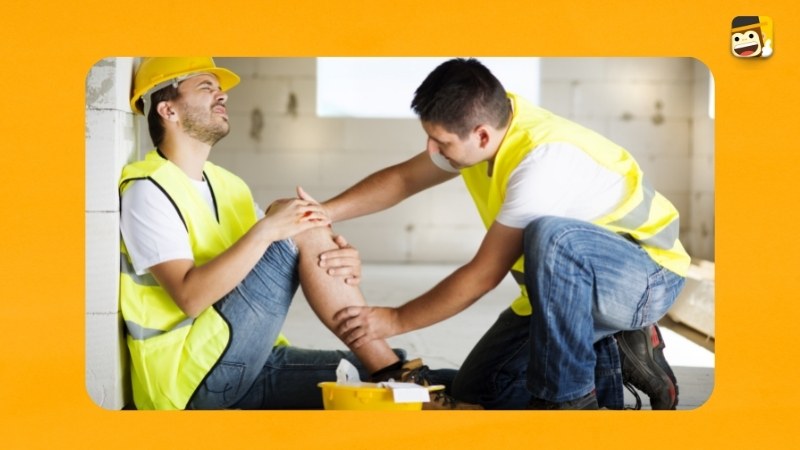
Being a witness to an accident is traumatizing. If you ever find yourself in a situation where you want to comfort someone, using these expressions will certainly help.
- Calm down = Śānta hō’um̐ (शान्त होउँ)
- Don’t worry = Cintā nagarnuhōs (चिन्ता नगर्नुहोस्)
- Take it easy = Yasalā’ī sajilai linuhōs (यसलाई सजिलै लिनुहोस्)
- You have been hurt, please stay calm = Tapā’īlā’ī cōṭa lāgēkō cha kr̥payā śānta rahanuhōs (तपाईलाई चोट लागेको छ कृपया शान्त रहनुहोस्)
- It’s going to be okay = Yō ṭhīka huna ga’irahēkō cha (यो ठीक हुन गइरहेको छ)
- It won’t hurt = Yasalē cōṭa puryā’unē chaina (यसले चोट पुर्याउने छैन)
- Please relax help is coming = Kr̥payā ārāma garnuhōs maddata ā’um̐daicha (कृपया आराम गर्नुहोस् मद्दत आउँदैछ)
- Help is on the way = Maddata bāṭōmā cha (मद्दत बाटोमा छ)
Other Emergency Situations That May Occur

In as much as we want everything to go according to plan, it is recommended that we keep ourselves on our toes. Staying alert is important, especially when you are in a country where you do not know anyone or do not even speak the native language.
- I’m lost = Ma harā’ēkō chu (म हराएको छु)
- I don’t know where I am = Malā’ī thāhā chaina ma kahām̐ chu (मलाई थाहा छैन म कहाँ छु)
- We’re lost = Hāmī harā’ēkā chauṁ (हामी हराएका छौं)
- We don’t know where our hotel is = Hāmrō hōṭala kahām̐ cha hāmīlā’ī thāhā chaina (हाम्रो होटल कहाँ छ हामीलाई थाहा छैन)
- Do you know where …… hotel is? = Tapā’īlā’ī thāhā cha hōṭala kahām̐ cha? (तपाईलाई थाहा छ होटल कहाँ छ?)
- We don’t know where we are = Hāmī kahām̐ chauṁ thāhā chaina (हामी कहाँ छौं थाहा छैन)
- I’ve forgotten the name of my hotel = Mailē mērō hōṭalakō nāma birsēkō chu (मैले मेरो होटलको नाम बिर्सेको छु)
- I lost my wallet = Mailē mērō vālēṭa harā’ēm̐ (मैले मेरो वालेट हराएँ)
- I lost my purse = Mailē mērō parsa harā’ēm̐ (मैले मेरो पर्स हराएँ)
- I can’t find my phone = Ma mērō phōna phēlā pārna sakdina (म मेरो फोन फेला पार्न सक्दिन)
- I can’t find my keys = Ma mērō kuñjīharū phēlā pārna sakdina (मा मेरो कुञ्जीहारु फेला पर्ना सक्दिन)
- I can’t find my passport = Ma mērō rāhadānī phēlā pārna sakdina (म मेरो राहदानी फेला पार्न सक्दिन)
- My passport is missing = Mērō rāhadānī harā’irahēkō cha (मेरो राहदानी हराइरहेको छ)
- My ID is missing = Mērō ā’īḍī harā’irahēkō cha (मेरो आईडी हराइरहेको छ)
- Leave me alone = Malā’ī ēklai chāḍidē’u (मलाई एक्लै छाडिदेउ)
- Go away = Ṭāḍhā jānuhōs (टाढा जानुहोस्)
- I’m starving = Malā’ī bhōka lāgēkō cha (मलाई भोक लागेको छ)
- Someone is chasing me = Kasailē malā’ī pachyā’irahēkō cha (कसैले मलाई पछ्याइरहेको छ)
- I need help = Malā’ī sahayōga cāhiyō (मलाई सहयोग चाहियो)
- I think I have been drugged = Malā’ī lāgdō rahēcha ki malā’ī lāgu padārtha sēvana gari’ēkō cha (मलाई लाग्दो रहेछ कि मलाई लागु पदार्थ सेवन गरिएको छ)
- Please call the police for me = Kr̥payā mērō lāgi pulisalā’ī kala garnuhōs (कृपया मेरो लागि पुलिसलाई कल गर्नुहोस्)
- Someone is following me = Kasailē malā’ī pachyā’irahēkō cha (कसैले मलाई पछ्याइरहेको छ)
- I’m thirsty = Ma tirkhā’ēkō chu (म तिर्खाएको छु)
- My vehicle broke down = Mērō gāḍī bigriyō (मेरो गाडी बिग्रियो)
Learn More Expressions In Nepali Today!
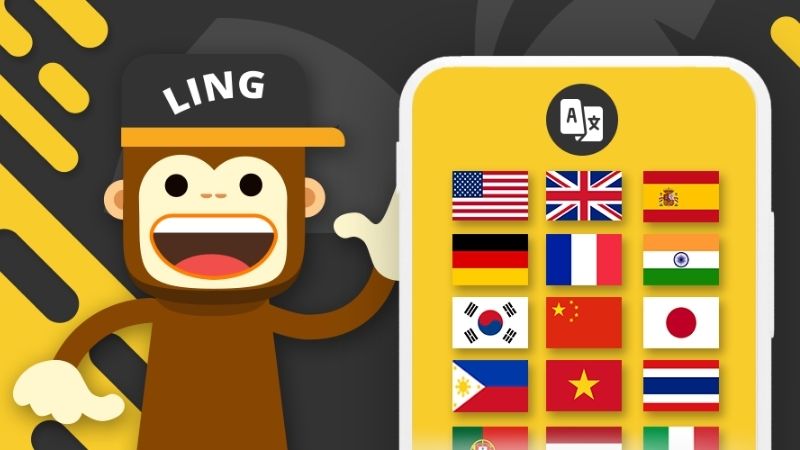
Start your language learning adventure today by choosing to download the Ling App for free on the Play Store as well on the Apple Store! This platform is an excellent resource for both travelers and language students as it offers lessons in Nepali based on real-life interactions. Instead of drilling you with highfalutin Nepali expressions or archaic words, the ones you will learn inside can all be used for an almost-native-sounding conversation with the locals.
Start learning the Nepali language today! Don’t miss this amazing chance to become fluent in a language that you desire to speak fluently! Download the Ling App today!
